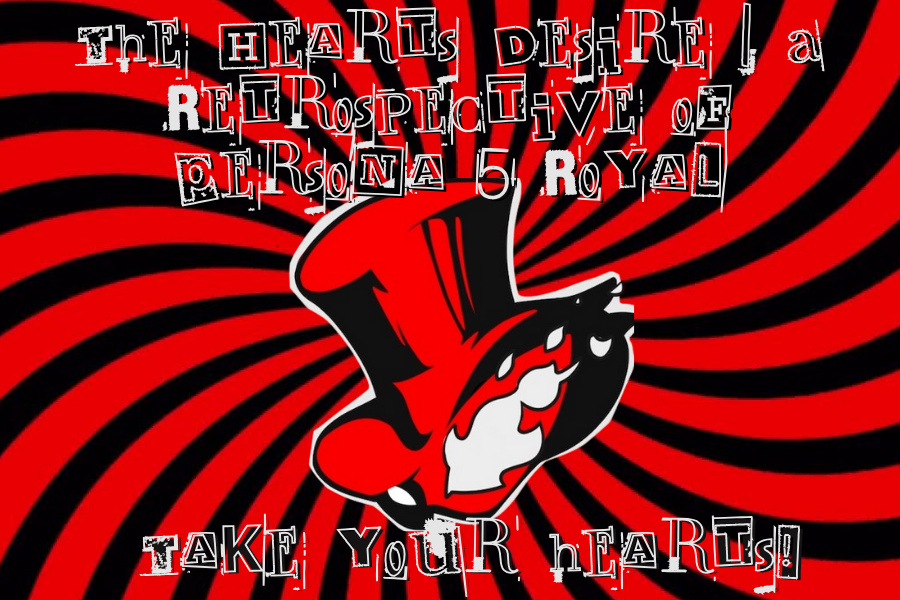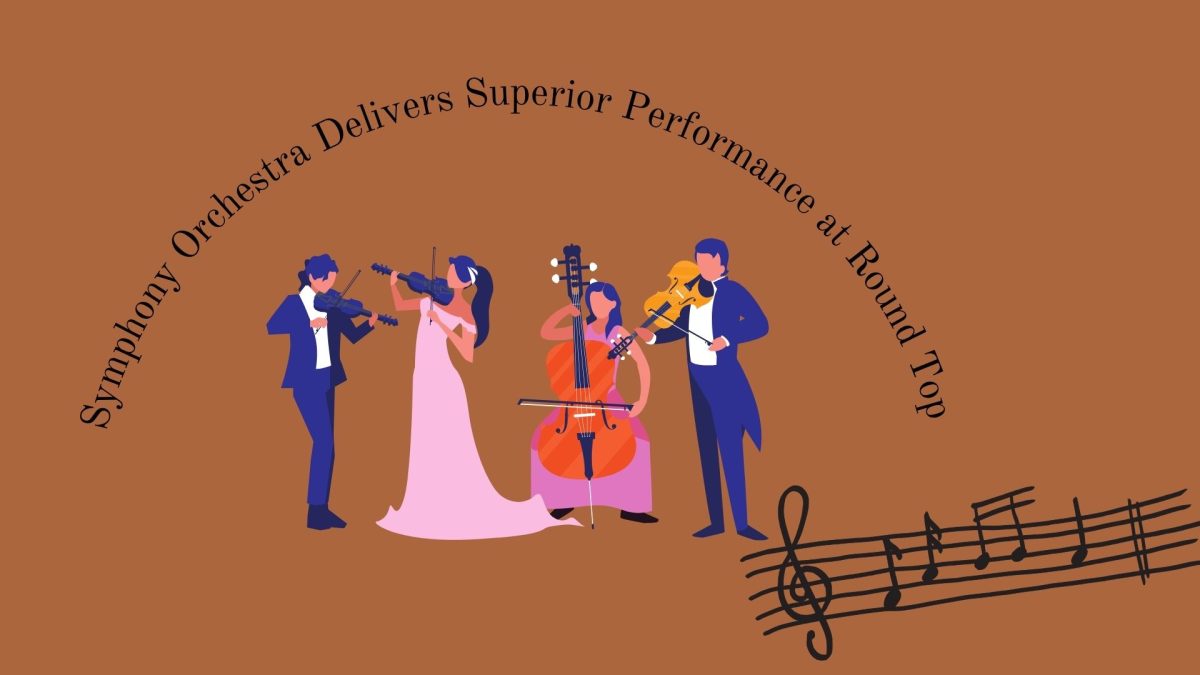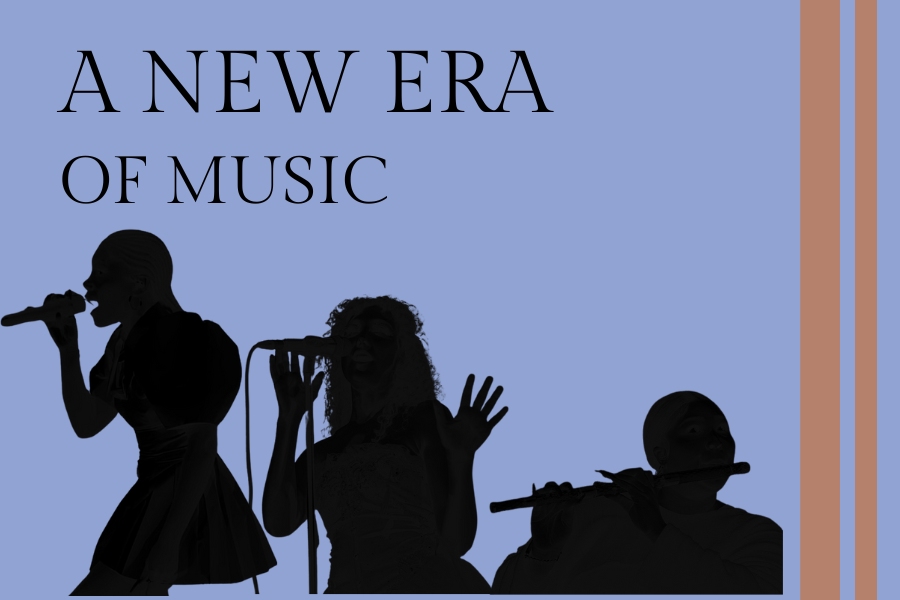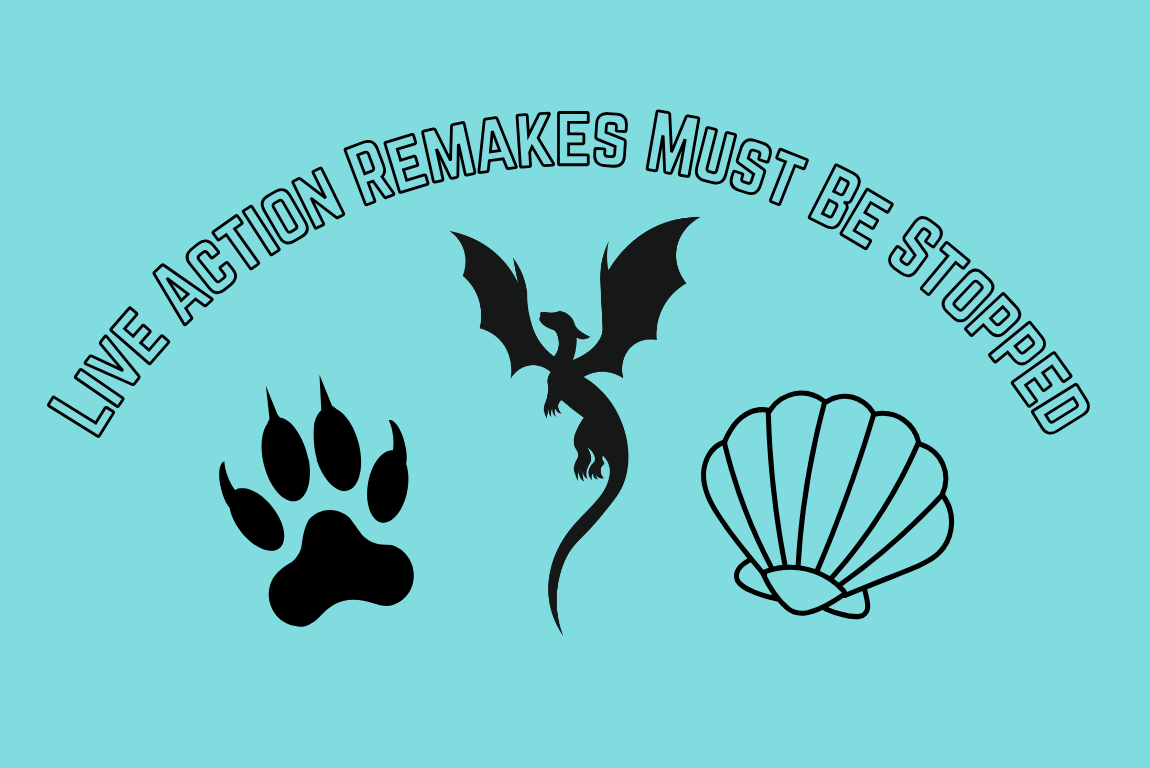Rebellion. An inevitable feeling for anybody young and old, the need to stand against authority. Whether it be a teenager disobeying their parents or an adult protesting the government’s status quo, these actions remain rooted in the same emotion: rebellion. That shared desire to oppose those in power is what makes stories like Hunger Games and Star Wars so engaging for audiences of all ages. And that core message of rebellion is one of the many reasons Persona 5 Royal remains timeless.
Released at the end of October in 2019, Person 5 Royal is an expansion of the game Persona 5. The game follows its protagonist, Joker, the leader of a group known as the Phantom Thieves, as he’s arrested by the police and interrogated by a prosecutor named Sae Niijima. From there, the rest of the game is essentially one massive flashback Joker has during his interrogation, recalling the events that lead up to his capture and providing context for everything in general. The player learns that the Phantom Thieves are a group of teenagers with access to an alternate universe known as the Metaverse (yes, really), a cognitive world formed by the desires of the masses.
The main conflict revolves around these distortions in the Metaverse known as Palaces, which are large scale buildings that were formed from the surplus desire an individual may have. To make it easier to swallow, imagine a corrupt politician. What could fuel their corruption? Greed? Hatred? Whatever you imagine, take that feeling and think of it as their desire. Certain individuals may allow that desire to fester, and grow uncontrollably. When that desire becomes too ambitious, they escape the common desire of the masses and cause the Metaverse to distort. Resulting in a Palace, a twisted version of a building that an individual holds dear. Their desires are housed in these Palaces, and the Phantom Thieves steal them to bring on a change of heart which causes the Palace Ruler to change their ways and admit to guilt.
Before diving into this game’s messages and meanings, the discussion of its gameplay, story, music, etc. has to come first. Up first in that discussion is any game’s selling point: its gameplay. Persona 5 is a turn based RPG like the other games in the franchise. However, it not only overhauled old mechanics, but also caused the entire industry of turn based combat to change. The game has an incredibly stylish and unique art style that shows even in their menus, with the pause menu oozing personality that matches the tone of the game while simultaneously characterizing the titular protagonist, Joker. Joker is a codename he uses in Palaces due to their cognitive nature, but his real name is determined by the player during the intro of the game.
The combat system relies on the mechanic of exploiting an enemies elemental weakness and gaining an extra turn. For example, if an enemy has a weakness to electricity and is hit with an electric attack, the party member that initiated the attack can act again. This style of turn based combat has been a staple of the Persona games but 5 adds a unique mechanic called the baton pass; once an ally activates their extra turn (known as “One more” in-game) they have the ability to pass to another party member with an added damage boost that can be further upgraded to regenerate health, SP (stamina points), and further increase the effectiveness of the damage buff. Comboing this mechanic together can cause a fight to end before the enemies can even move, allowing the party to start a stick up. Yes, you read that right: the Phantom Thieves will hold their enemies at gunpoint once they’re all knocked down. Doing so activates the negotiation mechanic, where Joker demands either money, an item, or for the enemy (Shadows, as they’re called, manifestations of humanity’s aggressive desire to abide by the status quo) to become his Persona. However a negotiation may not always be favorable, so instead Joker can perform an all-out-attack with his party to wipe out his foes in a dazzling and stylish way, creating an incredibly high octane combat system despite its turn based nature.
But Joker’s life doesn’t always have him fighting tooth and nail for the sake of societal change, he still has to attend class. That’s right, when you’re not stealing treasures from crazy palaces, you’re studying for finals, working a part time job, spending time with friends, and maybe going on dates if you so choose. Persona as a series makes you balance your time with a deadline to complete the current dungeon, and from then to now it gives you free reign to do whatever you want. You could finish the dungeon day one, hangout with friends, play darts, do laundry, whatever. It’s an amazingly executed use of the classic in-game timer, but instead of there being an ever present clock slowly counting down to failure it’s simply a reminder. It comes off very natural, causing the player to make every decision based on a schedule without outwardly telling them to do so.
On top of having gameplay unlike any other, Persona 5 has a gripping story that captures your attention. The player starts the game inside an interrogation room after an apparent heist gone wrong, and is forced to recall the events of the last five in game months. The player learns of Joker’s past, where he was framed for the assault of a government official and sent to Shibuya as probation. During his stay he uncovers the mystery of the Metaverse and why he was chosen as a Wild Card alongside his new friends. All of this stems from one root; rebellion. A Persona is the manifestation of a person’s rebellious nature made real that’s unique to them and them alone, only unlocked once the individual defies their societal role in favor of something greater than that. The central theme of the game stems from the courage to stand against an oppressive force for the sake of others, overcoming impossible odds without hesitation. Defying the notion that anyone can control your life; screaming, yelling, pushing, doing anything to keep that freedom people hold so dear.
A Persona is unique to its owner. However, Joker is different. He’s the Wild Card, after all. To understand why this makes him special, it’s necessary to understand the arcana system. Each Persona is a part of an arcana type, the arcana being the twelve major arcanas of a tarot deck. The Wild Card represents the Fool, a journey’s beginning, card zero. It’s an empty card with infinite meanings and possibilities, housing every arcana within itself at any given time. To put it plainly, Joker being a Wild Card means he has the potential to be anything during his journey, allowing him to hold any Persona not unique to an individual.
If you look at the game on its own, ignoring its message, commentary, everything, and look at it from a purely gameplay perspective, it’s a fantastic game. It has charm, style, enjoyable gameplay, fantastic music, everything a great game needs. But what sets it even further apart from RPGs at the time is its core, timeless, message: society can’t suppress individuality. This single point is expressed in every portion of this game from its symbolism, to the music, gameplay, story, everything in this game is used to push that message.
The game was originally released in 2016 then re-released in 2019, a time when society felt completely different from society now. But even now the message is still as impactful as it was then,. And it will continue to inspire others for years to come. But why this game specifically, when so many other games tell the same story?. Why is Persona 5 special? The answer to your question is personal involvement. Take Hunger Games: a story of rebelling, but it’s more about reading about a girl who is rebelling instead of rebelling yourself. Persona 5 is about you rebelling, you standing up against fate. Persona 5 has the player personally witness as their friends and tossed around by society like ragdolls, witness as their family is taken advantage of. In contrast to reality where an individual may not have the courage to take action, here you have the power to make a change. To find and act on that courage. By doing so in such an emotional game, it can help inspire someone to find that courage in reality, and act on it as well.
By the time this journey ends and the credits are rolling, you’ve clocked over 100 hours into this game, and you’re sitting there, astonished, blown away, aghast. You couldn’t imagine a game deserving that much praise, it had to be overrated. But after finally giving it a chance you can admit wholeheartedly: you never saw it coming.














